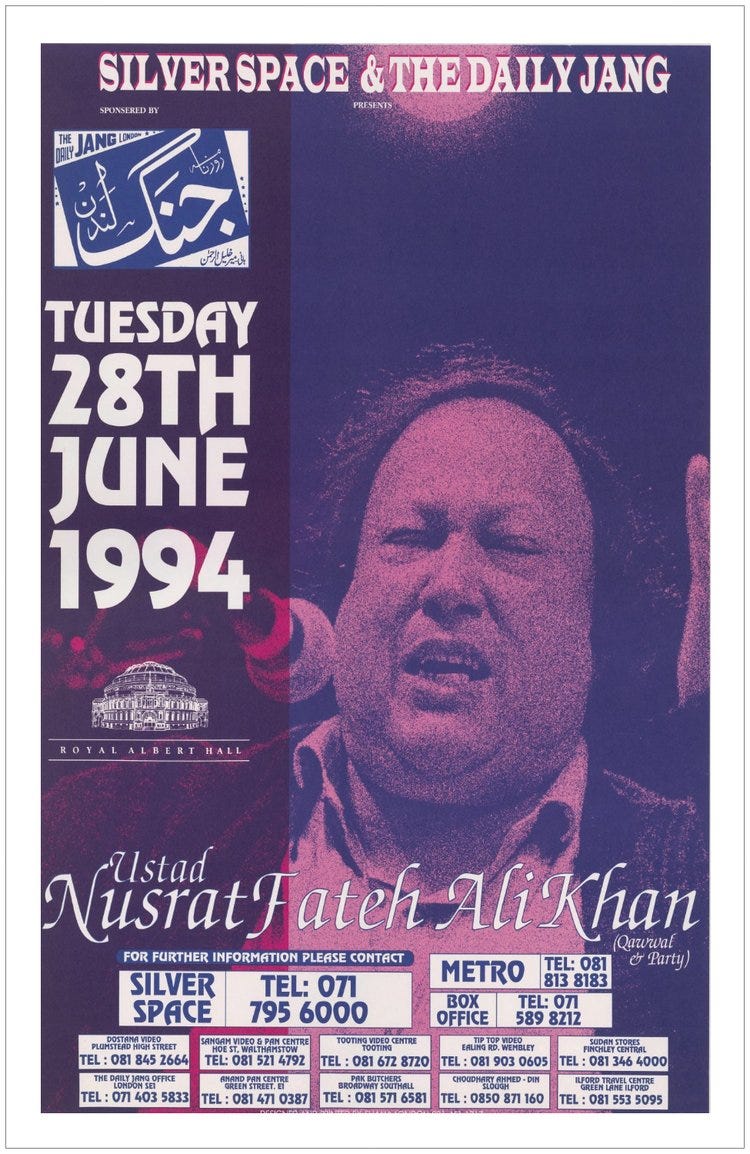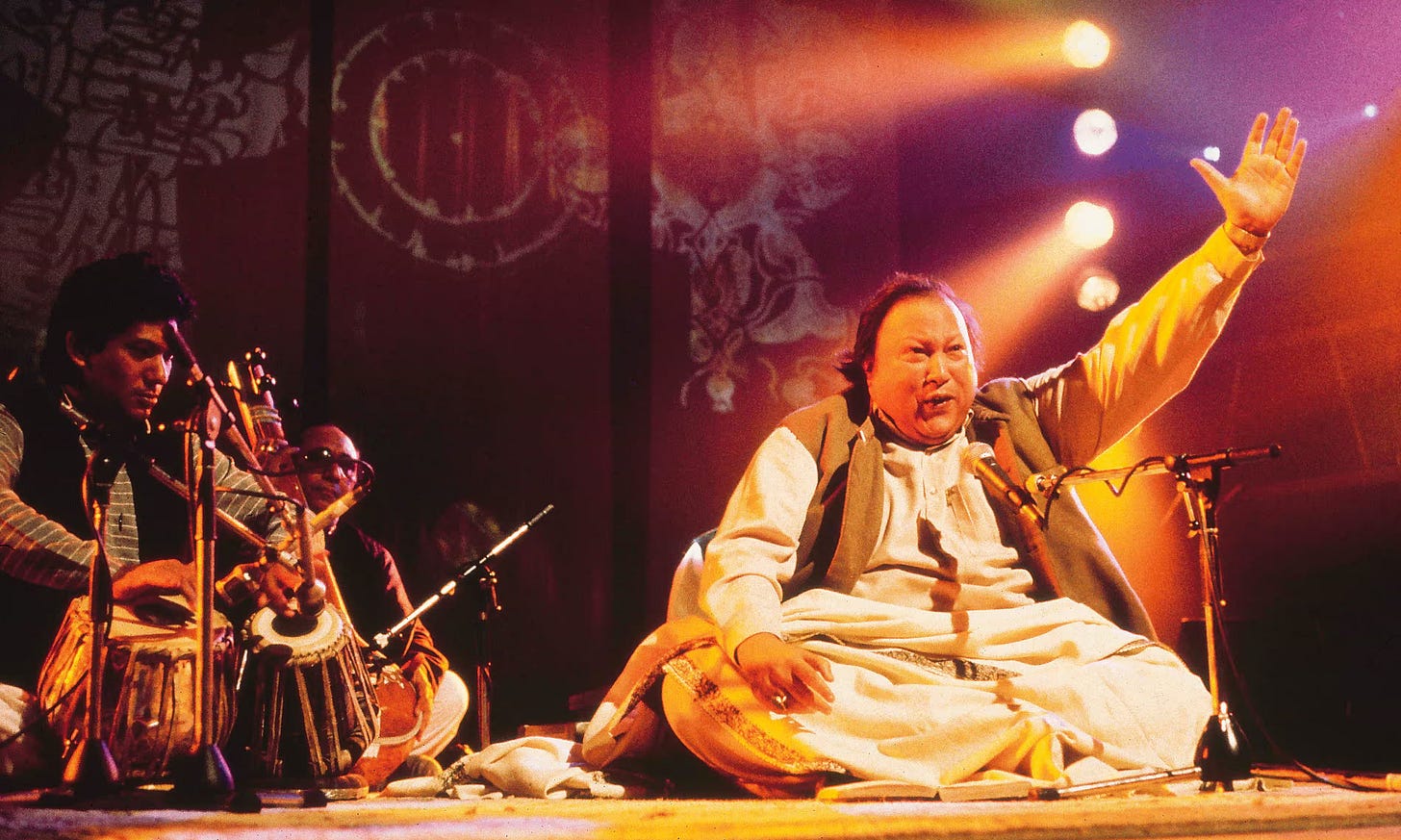From the Shrine to Spotify: How has Qawwali changed?
Words by Iman Ahmad
Welcome to the Brown History Newsletter. If you’re enjoying this labor of love, please do consider becoming a paid subscriber. Your contribution would help pay the writers and illustrators and support this weekly publication. If you like to submit a writing piece, please send me a pitch by email at brownhistory1947@gmail.com. Don’t forget to check out our SHOP and our Podcast

Recommended Reads:
From the Shrine to Spotify: How has Qawwali changed?
On the 13th of September, the beautiful and transcendental voice of Nusrat Fateh Ali Khan bounced off of the walls of the dimly lit, packed Silencio Theatre in Paris. This was an event organized on behalf of The Real World Studios, British Council, and Saiyna Bashir Studios to celebrate the release of Nusrat’s newly discovered album, “Chain of Light,” thirty years after his death. In addition, the night also included snippets of Ustad, an unreleased documentary made by Pakistani photojournalist, Saiyna Bashir, detailing the untold stories of Nusrat’s life and his rise to international stardom.
For the vast majority of us (at least in Pakistan), Nusrat, commonly referred to as ‘Khan Sahib’, stands as one – if not, the greatest, Qawwali artists of all time whose unique voice is easily distinguishable from the vast plethora of musicians today. So, it’s no surprise, really, that while hymns of Aaaj Sikh Mitran Di Vedheri and Ya Allah Ya Rehman (two of the unreleased songs from the ‘Chain of Light’ album) played, the melodic rhythm translated emotionally in the form of foot taps, sways of the hands and subtle bops of the head. But, the event was not just for Pakistani people. In fact, the majority of the audience were French-speaking and had been avid fans of Khan Sahib’s music for decades – displaying knowledge in the Q&A that no Pakistani knew. Like, did you know there’s archival footage of Nusrat Sahib playing basketball? Another also spoke of the fate of Nusrat’s daughter after his passing. However, in hindsight this revelation shouldn’t have been so surprising. Of course, the greatest gift of music lies in the fact that it does not have to be understood to be enjoyed and on second thought, how many words could I even decipher from the lyrics from Nusrat (not that many)? But if music’s popularity does not require understanding – how did Nusrat bring Qawalli to the global stage and cross cultural boundaries? And more importantly, what does Nusrat’s legacy say about the spiritual significance of Sufi music and its recognition?





